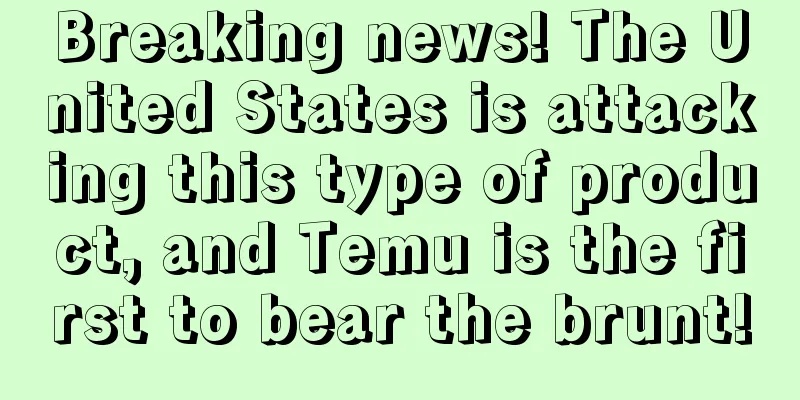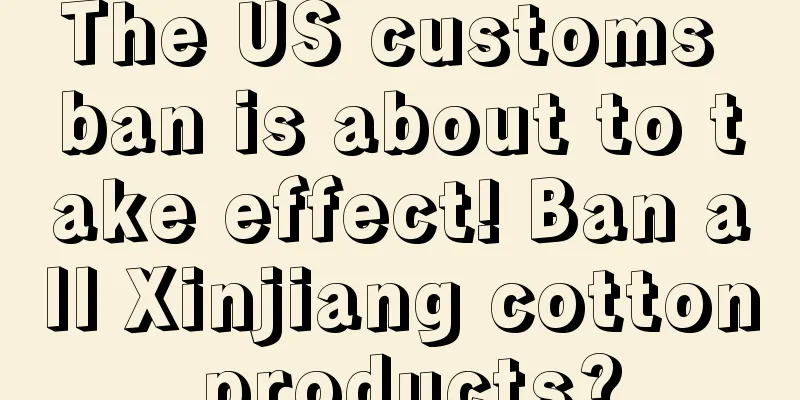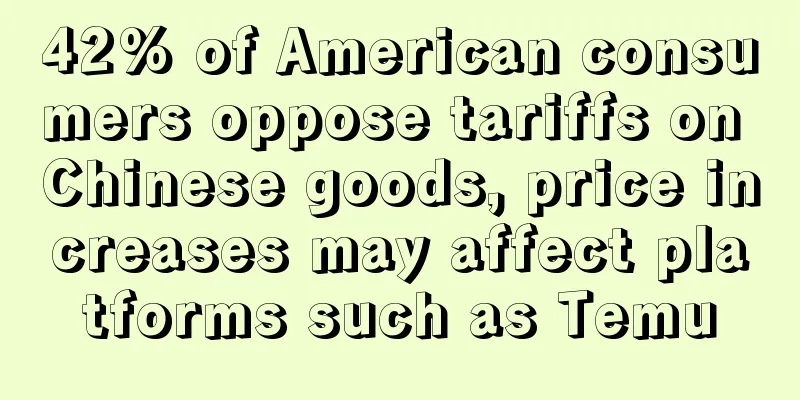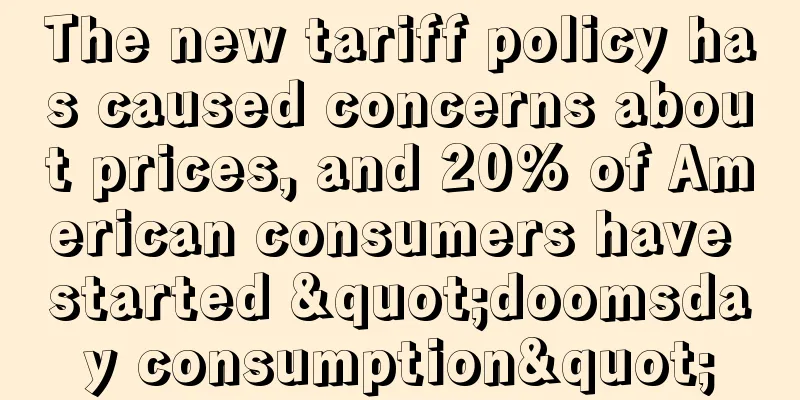In 2023, China's four overseas dragons actively embraced the full-hosting trend, relying on their extreme cost-effectiveness to disrupt the market and successfully carved out a place for themselves in overseas markets. As we enter 2024, the four little dragons are still accelerating their pace of going global. According to the list of the top five e-commerce platforms in the United States in 2024 disclosed by foreign media, Temu and TikTok Shop are among them. According to Salesforce 's research, Chinese e-commerce platforms may dominate the overseas holiday sales season this year, and 63% of Western consumers plan to shop on platforms such as SHEIN. But as the saying goes, "A tree that stands out in the forest will be destroyed by the wind." As the four little dragons going global become more and more powerful, they gradually threaten the status of old local e-commerce giants such as Amazon. A crackdown on Chinese e-commerce platforms is preparing to begin...The United States may cancel the tax-free policy for cheap packagesIn recent years, more and more low-cost e-commerce platforms such as Temu have gained momentum in the European and American markets, with a large number of low-value packages flowing into the market, creating a gap in the lower-tier markets. As a big tree attracts the wind, China’s crazy expansion has undoubtedly attracted the attention of governments around the world, and they have extended their regulatory claws to tax-free policies. It is learned that according to the latest report from foreign media, the US government recently announced that it will take new measures to combat ultra-low tariffs on unsafe and unfair trade products to protect American consumers, workers and businesses. Under the de minimis exemption policy, goods are eligible for a de minimis exemption if the retail value of the imported goods is $800 or less. These small-value goods enter the United States with a more streamlined customs process and are exempt from duties and taxes. Over the past decade, the number of imports for which the United States has applied for minimum exemptions has increased significantly, from about 140 million pieces per year to more than 1 billion pieces per year. Most of these small-value goods come from Chinese cross-border e-commerce platforms such as Temu and SHEIN. In response, the US government believes that the large number of low-value products (such as textiles and clothing) imported into the US market duty-free puts American consumers at risk and also harms the interests of American workers and businesses. In addition, the US government also pointed out that some companies took advantage of small exemption policies to secretly transport illegal and dangerous products, violating US health and safety laws and consumer protection laws, while evading relevant policy supervision by US trade enforcement agencies. To this end, the US government issued a new announcement, announcing that it is using administrative power to stop the abuse of small exemption policies. At the same time, it called on Congress to pass legislation this year to comprehensively reform the minimum exemption to further protect American consumers, workers and businesses. The announcement covers the following key contents: 1. Establish new rules to limit the amount of duty-free imports and strengthen trade enforcement: Exclude from de minimis exemptions all goods containing products subject to tariffs under Section 201 or 301 of the Trade Act of 1974 or Section 232 of the Trade Expansion Act of 1962. The 2.301 tariffs currently cover about 40% of U.S. imports , including 70% of textiles and apparel imported from China. Some e-commerce platforms and sellers circumvent these tariffs by shipping items from China to the United States and applying for de minimis exemptions. If the new rules are finally passed, these goods will no longer be eligible for de minimis exemptions. 3. The new rules will also ensure that de minimis exemptions for products under trade enforcement actions are consistent with U.S. trade law. Products covered by antidumping or countervailing duty orders have been excluded from de minimis exemptions. In addition, the administration plans to issue a notice of proposed rulemaking on the entry of low-value goods, proposing to strengthen information collection requirements to regulate accountability for de minimis shipments and increase enforcement efforts. It is reported that in order to advance the development of this new regulation, the Consumer Product Safety Commission (CPSC) staff intends to propose a final rule requiring consumer product importers to submit a Certificate of Compliance (CoC) electronically to CBP and CPSC upon entry, including de minimis shipments. [ Seize TikTok e-commerce traffic and detonate big promotion growth at the 2024TikTok Shop Peak Season Big Promotion Traffic Summit. Click here to register]
EU plans to remove tax-free thresholds It is understood that in fact, governments around the world are frequently strengthening control or implementing reforms on small exemption policies. In July 2021, the EU issued new regulations to officially cancel the 22 euro import duty-free quota. In May 2023, the European Commission again proposed a related bill to cancel the current policy of duty-free imports below 150 euros. There have been rumors that the EU will cancel small exemptions, but it has never been officially implemented. Recently, according to foreign media reports, the European Commission plans to cancel the threshold for goods below 150 euros to be exempt from tariffs, and impose tariffs on low-priced goods on Chinese e-commerce platforms such as Temu and AliExpress to reduce the surge in imports of low-priced goods. Data from the European Commission shows that last year the EU imported 2.3 billion items below the tax-free threshold of 150 euros. This year, e-commerce imports have more than doubled year-on-year, with imports in April exceeding 350,000 items, equivalent to an average of two items per household. EU officials said that although the removal of the tariff threshold was proposed last year, it may now be accelerated to cope with the surge in low-priced imported goods. Once the policy is implemented, it means that large platforms will have to pay VAT online regardless of the value of the goods. As the main targets of the crackdown, the four Asian Tigers have responded to this. Temu said that its growth does not rely on low-priced goods, and as long as the policy is fair, it will accept and support any policy adjustments made by legislators that are in the interests of consumers; AliExpress revealed that it is working with legislators to ensure that it complies with EU market regulations, and SHEIN said it will fully support the decision to reform tariffs. For platforms like Temu that mainly sell small and light goods, the small exemption policy is conducive to reducing transportation costs. For example, cross-border small parcel direct mail delivery is convenient for customs clearance and has a low inspection rate. The control of logistics costs has also laid a solid foundation for Temu to establish a price advantage. The cancellation of the small exemption policy is likely to weaken the price competitiveness of goods to a certain extent, leading to an increase in platform operating costs. The sellers behind it will also inevitably be affected and may face stricter tax compliance challenges.
|










